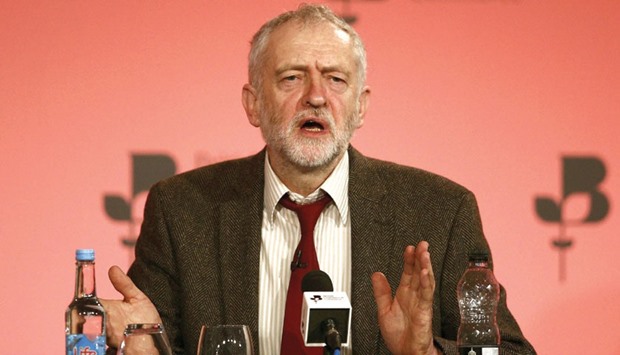
u201cIt’s a private matter in so far as it’s a privately held interest, but it’s not a private matter if tax has not been paidu201d
Prime Minister David Cameron came under pressure to explain his family’s financial affairs yesterday after the so-called Panama Papers revealed his late father ran an offshore fund which avoided paying tax in Britain for 30 years.
A government source said Cameron had no funds in offshore accounts or investments, but a spokesman said the issue of his family members’ holdings was a “private matter”.
The revelations are embarrassing for the prime minister, who has sought to lead international efforts to improve financial transparency and whose government is hosting an anti-corruption summit covering the issue next month.
Opposition Labour leader Jeremy Corbyn called for an investigation into the tax affairs of all those implicated in a massive leak of tax documents from Panamanian law firm Mossack Fonseca, including the Camerons.
“I think the prime minister, in his own interest, ought to tell us exactly what’s been going on,” he said. “It’s a private matter in so far as it’s a privately held interest, but it’s not a private matter if tax has not been paid,” Corbyn said.
He also suggested that London could impose direct rule on British overseas territories if they were revealed to have become places for “systematic evasion” of tax.
“The prime minister should lead by example and come out and set the record straight on his own tax affairs - we need full and total transparency,” John McDonnell, Labour’s shadow chancellor, said in a statement.
The Panama Papers also list several British entrepreneurs and former politicians who have made large donations to Cameron’s Conservative Party.
“The Tories (Conservatives) should come clean and set out exactly what the situation is - is the prime minister happy to receive money from big donors who are accused of tax avoidance?” McDonnell said.
The prime minister’s father Ian Cameron helped found Blairmore Holdings, an investment fund based in the Bahamas, in the early 1980s and was reportedly one of five UK-based directors until shortly before his death in 2010.
His offshore dealings were previously known, but the leaked documents revealed that the fund hired local residents to sign its paperwork to avoid paying tax in Britain.
“In 30 years, Blairmore has never paid a penny of tax in the UK on its profits,” said The Guardian newspaper, which has seen the leaked documents along with the BBC.
There is no suggestion that the fund acted illegally or that the family did not pay tax on any repatriated assets.
Steve Richards, a political commentator for The Independent, said Cameron “cannot be held responsible for his father’s financial arrangements,” but argued that the leaks reflect “the powerlessness of elected power.”
“When the super-rich have the power to avoid their fair share of tax, the elected rulers become even more constrained,” Richards wrote in the newspaper.
Corbyn called for an independent investigation, and demanded the government in general “stop pussyfooting around on tax dodging”.
“There cannot be one set of tax rules for the wealthy elite and another for the rest of us,” he said.
In a statement, Jennie Granger, the government official in charge of revenue enforcement and compliance, said her department would “relentlessly pursue tax evaders”.
Legislation forcing British companies to disclose who owns and benefits from their activities comes into force in June.
The revelations emerged from the leak of 11.5mn confidential documents from Mossack Fonseca, which specialises in creating offshore shell companies.
The leak has shone a spotlight on tax havens, including the British Virgin Islands (BVI), a tiny British overseas territory in the Caribbean.
Despite having a population of only around 30,000, it is among the top five investors in Russia and China, according to a 2014 report by the OECD.
